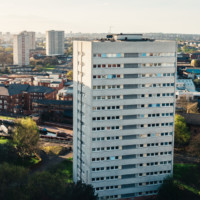
The “Polluter Pays” Bill uses the same principle as the law for contaminated land and would allow the government to pursue remediation and interim safety costs from responsible parties in the construction industry, such as developers and builders, rather than leaseholders or homeowners.
The bill divides buildings into two groups, those that did not comply to building regulation at the time of construction, and those that were compliant when they were built but are no longer compliant following Grenfell.
This means the bill does not have time limitations, unlike current law where people have six years from when the building is built to file legal action, which will allow more mortgage prisoners access to funds.
It also works in tandem with government levies and grants, which amount to £5.1bn, and permits emergency grants to those who are on the verge of bankruptcy.
Speaking to this publication, campaigner Steve Day, who is spearheading the bill, said: “Trust in building regulation has broken down. People don’t believe buildings are built safely, so what we are saying is instead of letting the construction industry off with a tax and levy that isn’t good enough for breaking building law, the responsible parties should be held liable.”
He said that this would benefit mortgage lenders as it would rebuild trust in building regulation and compliance and went on to say that it would eliminate the need for EWS1 forms.
It also does not class mortgage lenders, or other financial services, as polluters in its bill unlike other amendments which could seek redress from mortgage lenders.
Lord Greenhalgh, who is minister of state for building safety, leasehold, resilience and emergencies and communities, said in the House of Lords: “We are very aware of the Polluter Pays Bill and the work that is being done… This is something we are looking at very carefully to see if it would further enhance the Building Safety Bill.”
He added that it was already considering extending the legal action time limit from six years to 15 years, but the Polluter Pays Bill could provide further support to ensure that it is the polluter that pays remediation.
Industry response
The proposal has been greeted positively by the mortgage industry, but concerns have been expressed around how long this process will take to implement.
Robert Sinclair, chief executive of Association of Mortgage Intermediaries, said: “This proposal to resolve the issues on funding the remediation of buildings with unsafe cladding would be a significant step forward to resolving the problems facing residents. However, it will still take time particularly if ministers fail to grasp the opportunity and support these amendments.
He added: “Whilst these proposals are welcome it will take some time to avoid the need for EWS1 forms and too long to resolve the structure of many high-rise buildings. It is right that government should be funding all replacement and repairs and then recovering the cost from those they deem responsible – rarely those who currently occupy the properties.”
The Intermediary Mortgage Lenders Association’s chief executive Kate Davies said that these latest proposals could lead to “meaningful progress” to the cladding crisis.
She said: “By shifting the balance and making developers front building remediation costs, we can hold those who failed to properly construct these dwellings to account, remove the cost burden currently unfairly placed on individual homeowners, and speed up the process of remedying unsafe homes.
“This isn’t going to be a perfect solution and there will be instances where building developers cannot be found to front the costs, especially where they are no longer in operation, but it would be a step in the right direction. Any initiative that helps to ease the immediate dilemma for borrowers and gives mortgage providers the reassurance to lend on safe properties, should be welcomed.”
Government response
A Ministry of Housing, Communities and Local Government spokesperson said: “Our priority is making sure residents are safe and feel safe in their homes by removing dangerous cladding from the highest risk buildings as quickly as possible backed by over £5bn.
“We have been clear throughout that owners and industry should make buildings safe without passing on costs to leaseholders – and we will ensure they pay for the mistakes of the past with a new levy and tax to contribute to the costs of remediation.”














